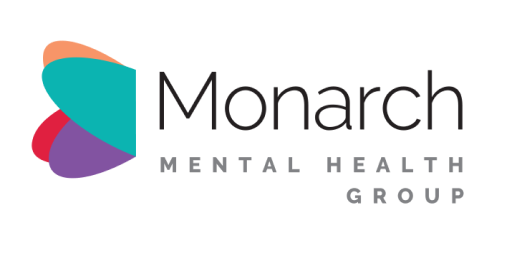Inattention, hyperactivity, and impulsivity are the cardinal signs of ADHD and cause significant problems for children and adults. Common treatment strategies involve medications like methylphenidate (Ritalin), amphetamine-based stimulants (Adderall), and some antidepressants or behavioural therapies that teach children and adults to monitor and manage their impulses.
However, these ADHD treatments aren't always practical, especially as they are such strong medications. Little wonder that transcranial magnetic stimulation (TMS) has gotten increasing attention as a treatment for ADHD.
What is ADHD? And What Are the Symptoms?
Attention Deficit Hyperactivity Disorder (ADHD) is a mental health condition marked by an unusual level of hyperactivity and impulsive behaviours. ADHD sufferers may also face difficulties focusing on a single task or maintaining a still posture for prolonged periods.
While inattention and variable energy levels are everyday human experiences, for ADHD individuals, these phenomena occur more frequently and intensely. These ADHD symptoms can significantly impact their studies, work, relationships, and daily home life.
ADHD manifests in a spectrum of behaviours. Some common ones include:
- Trouble focusing or concentrating on tasks
- Forgetfulness about completing tasks
- Distraction susceptibility
- Difficulty sitting still
- Frequent interruptions during conversations
These symptoms can further be delineated based on specific ADHD aspects like hyperactivity, impulsivity, and focusing challenges. A person experiencing hyperactivity and impulsivity might find it hard to sit still, play or carry out tasks quietly, wait for their turn, or refrain from interrupting others.
In contrast, someone struggling with focus could frequently make mistakes, find it challenging to stay organized, lose items regularly, and be easily distracted by minor things happening around them.
If you have ADHD, you may experience some or all of these symptoms, contingent on your ADHD type. Further ADHD assessment can aid in understanding the specific symptoms common in children and adults.
What is Transcranial Magnetic Stimulation?
Transcranial Magnetic Stimulation (TMS) is a noninvasive deep brain stimulation technique used as an ADHD treatment when other traditional treatments are ineffective. TMS has gained significant attention as a potential treatment for various mental health conditions, including major depression, obsessive-compulsive disorder, migraines, and now ADHD.
Repetitive Transcranial Magnetic Stimulation (rTMS)
The predecessor to dTMS, rTMS, is a relatively noninvasive procedure involving a device placed directly on the skull. The device, containing a wire coil carrying electricity, generates a magnetic field that pulses rather than remains steady, hence the term "repetitive." The flow of electricity through this device stimulates neurons, altering their activity levels. The number of rTMS treatments needed will vary based on the treatment protocol and should be discussed with a healthcare provider.
Can TMS Help Individuals With ADHD?
In short, yes! For those seeking an innovative and non-pharmaceutical ADHD treatment, TMS presents a promising solution. TMS influences the brain's electrical activity, addressing various mental health disorders triggered by unusual neural activity or inappropriate production of neurotransmitters.
TMS uses the intrinsic connection between magnetism and electricity to alter the brain's electrical activity in a noninvasive and pain-free manner. By focusing magnetic waves on the brain areas exhibiting unusual activity levels, clinicians can directly target the needed part without causing discomfort.
These magnetic waves stimulate neurotransmitter production, facilitating an appropriate balance in the brain's electrical activity. Over several weeks of treatment, TMS can help regulate neurotransmitter production, mitigating the effects of ADHD.
What's the Evidence?
Hardly a day goes by without a new medical treatment promising big, only never to be heard of again. That's especially true for ADHD treatments. So, while TMS promises impressive results, it's understandable to be sceptical. "Show us the evidence!"
Let's go through some of the leading studies:
An early study conducted in 2012 analyzed the use of TMS to assess its safety profile in adolescents and young adults. Two courses of treatment were given – one real and the other fake. Full brain scans were conducted throughout the experiment. The authors concluded that TMS was "safe, with no serious adverse effects observed in this pilot study." Furthermore, they noted an improvement in symptoms across the study.
These observations were confirmed in 2015 in a paper by Zaman, which noted that "transcranial Magnetic Stimulation (TMS) and repetitive transcranial magnetic stimulation (rTMS) are safe and noninvasive investigative and therapeutic tools, respectively."
In a narrative review, researchers identified 32 studies, which collectively indicated that individuals did not suffer any major adverse events and saw a reduction in symptoms – although the authors cautiously noted the need for further research involving a larger number of participants.
Another analysis of rTMS observed that both reported symptoms and EEG results correlated with a reduction in overall symptoms. They also recommended conducting trials with larger cohorts but considered TMS as a positive non-pharmacological treatment for adults with ADHD, especially in conjunction with EEG monitoring and candidate selection.
In children and adolescents, there's more caution about using alternative ADHD treatments. However, this is not reflected in the literature. In a 2021 study published in the journal Psychiatrist, TMS was highlighted both for its treatment potential and as a tool for understanding the pathophysiology of ADHD. The authors emphasize TMS as a valuable treatment for adolescents and adults with ADHD, given its noninvasive and well-tolerated profile.
Meanwhile, a review of TMS for pediatric ADHD also concluded that TMS could be used diagnostically or to induce long-lasting and potentially therapeutic changes in targeted neural networks, especially in children who do not respond to conventional pharmacological ADHD treatments.
Is TMS Safe as An ADHD Treatment?
As an ADHD treatment option, TMS has demonstrated a favourable safety and tolerability record.
Unlike invasive procedures requiring surgery or electrode implantation, TMS is noninvasive, reducing the risk of complications commonly associated with surgical interventions. Furthermore, it doesn't induce seizures or result in memory loss, as is the case with procedures like electroconvulsive therapy (ECT). TMS also doesn't necessitate anesthesia, further enhancing its safety profile.
Most individuals who undergo TMS report mild to moderate side effects that typically lessen over time with subsequent sessions. These may include:
- Scalp discomfort or pain
- Headache
- Lightheadedness
- Facial muscle spasms or twitching
Always let your healthcare provider know if you're experiencing any symptoms or side effects. They can tailor the treatment to your needs, even administering pain relief to manage your discomfort.
There are a few rare but more serious side effects to be aware of. These can include:
- Seizures
- Emotional highs or mania (particularly in those with bipolar disorder)
- Hearing loss (if proper ear protection isn't used during the treatment)
While these side effects aren't typical, they can be managed with the right precautions and careful monitoring.
How to Receive TMS Treatment for ADHD
Are you considering TMS as a treatment for ADHD? You're not alone. Many are exploring this innovative treatment option. So, how do you get started? Here are the steps:
- Undergoing an ADHD Assessment: Start with a comprehensive ADHD assessment from a trusted healthcare provider. This is vital for accurately diagnosing your condition and understanding the specifics of your symptoms.
- Choosing a Trusted Provider: Monarch Mental Health Group is a trusted choice for comprehensive ADHD assessments. Our seasoned team is committed to individualized care, providing you with a thorough evaluation, including questionnaires, interviews, and even psychological testing.
- Understanding Your Diagnosis and Exploring Treatments: After your assessment, if you receive an ADHD diagnosis, the empathetic professionals at Monarch Mental Health Group will journey with you to explore various treatment options.
- TMS Guidance: Should TMS seem like the right fit for you, they will walk you through every aspect of the treatment. You'll learn about the mechanics of TMS, the potential benefits and side effects, what a typical course of treatment looks like, and how your progress will be tracked.
- Starting TMS: Commencing TMS treatment generally requires a referral from a psychiatrist, psychologist, or other healthcare professional. Rest assured, the team at Monarch Mental Health Group will support you in this process, ensuring TMS is indeed the right choice for you.
- Formulating a Comprehensive Treatment Plan: TMS can be a potent strategy for managing ADHD symptoms, but it often shines brightest as part of a comprehensive treatment plan, which may also encompass medication, cognitive-behavioural therapy, and lifestyle changes.
Remember, the compassionate team at Monarch Mental Health Group is prepared to assist you in navigating this journey, helping you discover the most effective, personalized treatment path tailored to your needs.
Final Thoughts
ADHD, a significant health challenge, has a promising ally in TMS. Pursuing a comprehensive ADHD assessment could open the door to TMS – a safe, effective approach that could significantly improve ADHD management. Today could be the day you explore this potential with the professional ADHD assessment provided by Monarch Mental Health Group.
References:
https://pubmed.ncbi.nlm.nih.gov/22551775/
https://pubmed.ncbi.nlm.nih.gov/32418073/
https://pubmed.ncbi.nlm.nih.gov/26417832/
https://www.ncbi.nlm.nih.gov/pmc/articles/PMC8195561/
https://www.intechopen.com/chapters/49122
https://pubmed.ncbi.nlm.nih.gov/34150364/
https://www.ncbi.nlm.nih.gov/pmc/articles/PMC7021642/
https://www.ncbi.nlm.nih.gov/pmc/articles/PMC4833526/
https://www.mytransformations.com/post/tms-therapy-for-adhd-everything-you-need-to-know
https://www.healthline.com/health/adhd
https://www.mayoclinic.org/tests-procedures/transcranial-magnetic-stimulation/about/pac-20384625
https://www.verywellmind.com/ocd-and-transcranial-magnetic-stimulation-2510634
.png)
About The Author
Dr Ted Cassidy
Dr. Ted Cassidy is a psychiatrist and co-founder of Monarch Mental Health Group in Australia, which provides innovative treatments for depression, PTSD, and anxiety. Monarch Mental Health is recognized as Australia's first outpatient clinic offering assisted therapy and is the largest provider of outpatient magnetic stimulation therapy.

